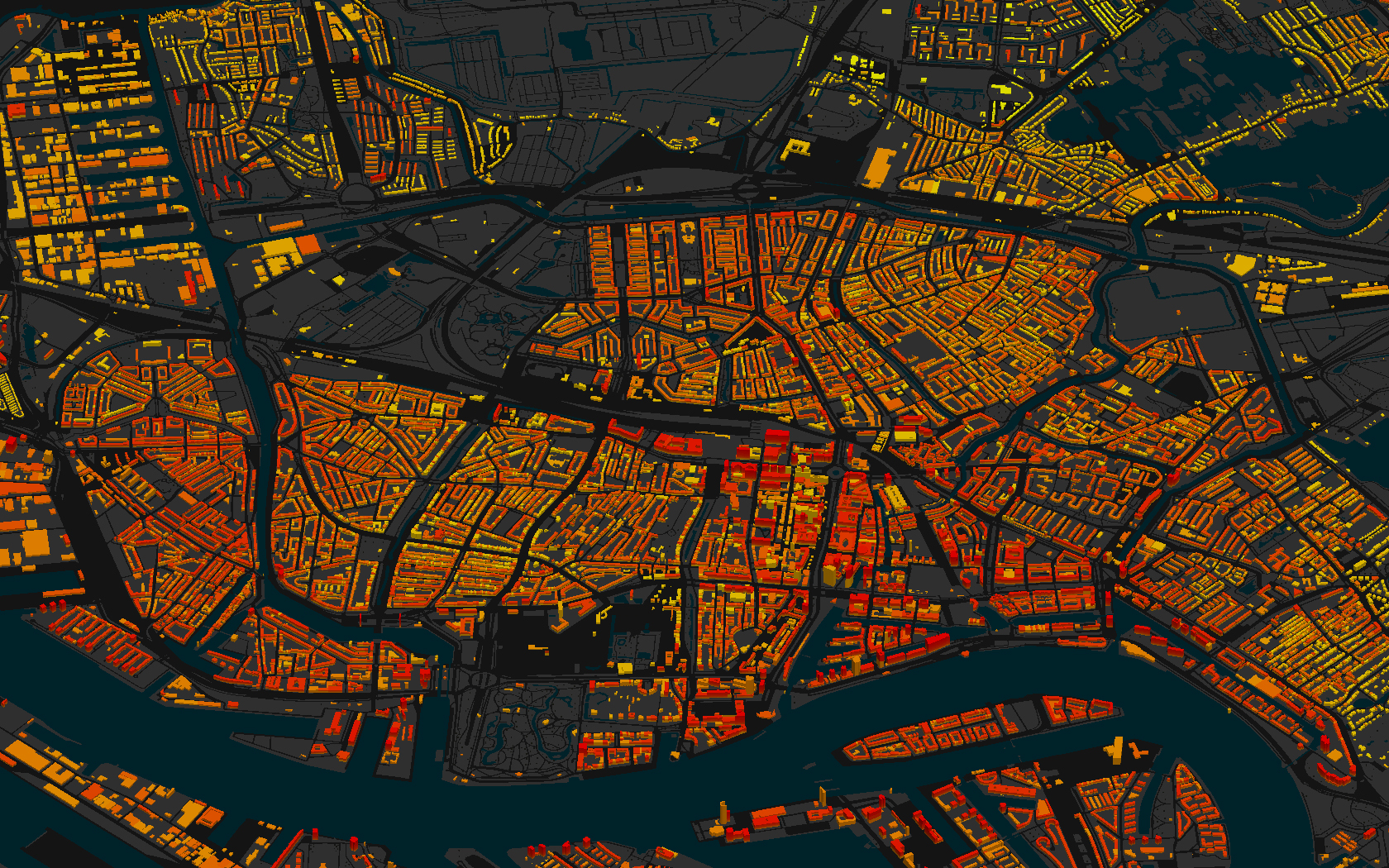Iris Theunisse
Geomatics

The Visualization of Urban Heat Island Indoor Temperatures
The urban heat island (UHI) describes the phenomena that the city heats up faster and stays warmer than its rural surroundings. The combination of ageing societies and increasing temperature, due to climate change, poses serious challenges for the health and wellbeing of the increasing urban population. Assessments of the urban heat island effect, so far use predominantly remote sensing methods, which don’t allow us to understand the crucial indoor temperatures. Therefore, this Master Thesis is focussing on the optimization of a technique for creating a three-dimensional (3D) model showing the indoor temperatures of an urban area, Rotterdam. The method created in this research is a reusable method that can be applied on other urban heat island region if necessary data is available. The output of this research, a 3D model, functions as a tool for urban planners and designers to help them understanding local differences in the urban temperature allowing them to develop strategies for the reconfiguration of a building, block or neighbourhood.
Data from a variety of data sources is acquired and used to create this model of which the most important data is coming from approximately 1300 temperature sensors that have been distributed over the city Rotterdam during the summer of 2014. Data coming from these sensors, the sampled data, is linked to a developed 3D model representing all addresses within the urban area of Rotterdam. Linking the sensor data to the 3D model does the transformation form aspatial sensor data into spatial sensor data. Data modelling is done for estimating indoor temperatures for all addresses of Rotterdam by analysing the sensed data and the spatial environment of each address of which sensor data is available. The original sensor data is used to validate and to determine the accuracy of the modelled temperatures. The modelled temperatures are visualised per adders by assigning colour gradient to the addresses according to their temperature.